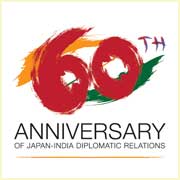 In a unique development, the pride of Pune’s may be protected by the Itellectual Property Rights, if all comes out as planned. Following in the footsteps of other cities, the Maharatta Chamber of Commerce, Industries and Agriculture (MCCIA) is finding the ways to protect city’s heritage with IPR.
In a unique development, the pride of Pune’s may be protected by the Itellectual Property Rights, if all comes out as planned. Following in the footsteps of other cities, the Maharatta Chamber of Commerce, Industries and Agriculture (MCCIA) is finding the ways to protect city’s heritage with IPR.Saturday, April 21, 2012
Can Intellectual Property Rights Save Pune's Heritage?
 In a unique development, the pride of Pune’s may be protected by the Itellectual Property Rights, if all comes out as planned. Following in the footsteps of other cities, the Maharatta Chamber of Commerce, Industries and Agriculture (MCCIA) is finding the ways to protect city’s heritage with IPR.
In a unique development, the pride of Pune’s may be protected by the Itellectual Property Rights, if all comes out as planned. Following in the footsteps of other cities, the Maharatta Chamber of Commerce, Industries and Agriculture (MCCIA) is finding the ways to protect city’s heritage with IPR.Japanese Comes Calling To Marathi
Thursday, April 19, 2012
We, The Indians, Need This
Monday, April 16, 2012
Nilu Phule Gets Tribute From Mother Organisation
 Rashtra Seva Dal, an arm of the socialist organisations, paid tribute to one of its illustrious members on Sunday by opening an art academy in his name. The academy, named after actor Nilu Phule, will conduct classes in acting, dance and singing.
Rashtra Seva Dal, an arm of the socialist organisations, paid tribute to one of its illustrious members on Sunday by opening an art academy in his name. The academy, named after actor Nilu Phule, will conduct classes in acting, dance and singing.
Nilu Phule, a thespian of the Marathi and Hindi theatre and movies, was a member of the Rashtra Seva Dal before he rose to prominence. Till his death in July 2009, he was a dedicated worker of the organisation. To preserve his memories as a social worker, the organisation came up with the thought of building an academy. It took off with the inauguration of acting workshop on Sunday.
According to Deepak Rege, director of the academy, each workshop will be of 15 days and total 20 hours of training will be given to students in each workshop. Training on videography, editing and audiography will be added later. These workshops will be run all year long and keeping in socialist tradition, the fees for these courses will be kept low. Makarand Tillu, renowned artist, was present at the inaugural workshop.
The Rashtra Seva Dal came up with the idea to start such an academy after it conducted number of workshops teaching dance, music and even acting. Rege said, “There are a number of institutes right now teaching these type of things. However, they are limited to the affluent class. We want to create new artists with a clear consciousness to help the society. These were the ethos of Nilubhau and need to be imbibed in the next generation.”
Reminiscing about his association with Phule, Rege said, “Even though we met quite often, I could never act with him. At that time, he used to tour part of the month for plays and remaining part was given for shooting. I was working with a bank then and used to take part in plays after service hours. Because of this, we could never tour or work together.”
“Since this is a socialist organisation, we want to reach to every sphere. Younger generation want to learn every type art forms. This is evident from the audience present here. We got 100 to 150 calls within a month after we announced the opening,” said Suresh Deshmukh of Rashtra Seva Dal.
He said, “It was characteristic of Nilu Phule that he remained a hard core humanist till last. Today’s artists throw tantrums at the first chance they get in TV or other mediums. We are teaching the students to avoid this. In another words, this is an attempt to create a gentleman from them.”
Deshmukh said that the organisation is charging Rs 4,000 which includes lodging and food charges as well. He said, “I have seen talent at rural places. The young ones in villages can learn the art here and practice it in their place as well.”
Abhijit Kosambi, winner of the Saregama championship, will be training the students in singing. He said, “It was because of the guidance given by Phule sir that I ventured into singing. I am very thrilled that I will be a part of the exercise associated with his name.” He reminisced how Phule was humility personified and reminded the students that the greatness of the heart makes an artist great.
Offering a tribute to Phule, Sandhyatai Kate, a veteran theatre personality who worked with the thespian in many folk plays, reminded that Phule used to experiment a lot in his plays. “He along with Ram Nagarkar used to play pranks and make additions during plays which put other artists on toes. But that made the entire experience interesting one,” she said.
Nilubhau And RSD
Nilu Phule started his career with Rashtra Seva Dal, which had an art wing, during the independence struggle period. He mainly acted in plays which gave a strong message of socialism, humanitarianism and political agitations. He was the head of the art wing in Pune of the organisation during late 1950s. His major plays with the organisation include ‘Yeragabalyache Kam Nahi’, ‘Kunacha Kunala Mel Nahi’, ‘Binbiyanche Zad’ and ‘Pudhari Pahije’.







